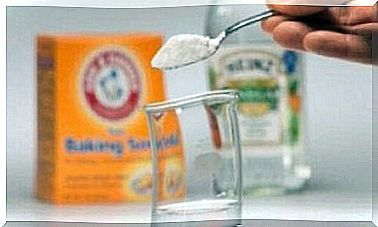What Are The Health Benefits Of Hazelnut Milk?

Hazelnut milk plots have health benefits, for example, if you are vegan, vegetarian, or if you suffer from lactose intolerance. Hazelnut milk has many health benefits that we want to talk about in this article.
Although most people recognize it as “milk,” it is a plant drink made from hazelnuts and water that is rich in the nutrients this nut provides. And it is from this main raw material that the health benefits of this drink have emerged.
What are the health benefits of hazelnut milk?
Although the nutrient composition of hazelnut milk is not the same as that of milk of animal origin, its consumption is still of great benefit to the body. These health benefits come to the fore above all if this plant milk is made a regular part of a varied and nutritious diet.
Hazelnuts, like other nuts, are highly energy rich. They contain vitamins, minerals, proteins and unsaturated fatty acids as well as fiber and antioxidants. Let’s take a closer look below at some of the most beneficial properties of hazelnut milk.
Affects tissue growth and formation
According to data from the Argentine National Food Agency, the minerals provided by hazelnuts are potassium, calcium, phosphorus, magnesium, zinc and iron. They are essential nutrients for the formation of tissues, the performance of vital functions and the promotion of normal growth. Many small cellular metabolic functions need these important elements to function properly.
It should be noted that calcium in plant drinks, unlike calcium in dairy products, is not 100% absorbed by the body. But for those people who don’t consume dairy products of animal origin, this option can be an important source of calcium. Therefore, if you drink vegetarian drinks regularly, it is recommended to choose products to which calcium has been added.

Prevents cardiovascular disease
The fats in hazelnuts are unsaturated fatty acids, especially fats belonging to the Omega-9 family, which are also found in almonds and pistachios. They also contain Omega-3 fatty acids to a lesser extent. These lipids are key to the development and function of the proper nervous system. In addition, they lower bad cholesterol (LDL), increase good cholesterol (HDL), and lower blood triglycerides. According to some scientific studies, hazelnut milk also has positive effects in the fight against cardiovascular disease.
Delays aging
Hazelnut milk containing zinc, magnesium and vitamin E has many antioxidant health benefits in addition to the properties mentioned above. Thanks to this, hazelnut milk can help prevent cell damage and delay aging. In addition to this, it helps maintain the elasticity of blood vessels.
Prevents constipation and improves digestive function
Hazelnuts contain fiber, which promotes optimal digestive function. At the same time, fiber both prevents disorders related to digestive function and treats related symptoms such as constipation.
Dietary fiber is a natural regulator of peristalsis, which is why it is also beneficial for people suffering from chronic constipation. Whatever the situation, the total daily consumption of dietary fiber should be determined on the basis of the functionality of the intestinal microbiota it affects.
Protects the nervous system
This nut is rich in iron and folic acid as well as important B vitamins such as vitamins B1, B2, B3 and B6. Therefore, its adequate intake promotes the development of neurons and supports the maintenance of the nervous system. In fact, hazelnut milk can be safely consumed throughout life, from childhood onwards, for the well-being of the nervous system.
How should hazelnut milk be prepared to preserve its properties?
If you want to make hazelnut milk at home, you should definitely keep this recipe in mind. All you need is a liter of water and hazelnuts; Of course, you can also add raisins, dates, vanilla or other flavoring ingredients to the recipe. Consider the following steps:
- First, the hazelnuts should be soaked in water for about 8 hours. During this time, their volume doubles. Also, keep in mind that for vegetable milk, nuts must be raw, not roasted, for example.
- When the soaking time has elapsed, pour off the water and place the swollen hazelnuts in a blender or food processor.
- You can follow the ratio of 3 cups of water per cup of soaked hazelnuts, but if you want the milk to be thicker or more fluid, respectively, you can change the ratio according to your taste. During the crushing of the nuts, water should be added to the set gradually to make it easier to mix.
- When the nuts and water are completely mixed, Strain the drink through a sieve with a thin cloth. Place a bowl or jug under the strainer where you want to store the milk. After sieving, the vegetable milk is immediately ready for consumption.
- Store the finished milk in a bottle or jug with a lid. Finally, you can also add the flavor you want to the drink.
Hazelnut milks sold in stores often have added sugar. Before buying a product, it is important that you familiarize yourself with the ingredients in the packaging to avoid getting too much sugar. Occasionally, calcium may also have been added to plant milk to match the proportion normally found in many dairy products of animal origin. Similarly, various preservatives and ingredients have been added to commercially available plant milks to ensure the taste, quality and shelf life of the product. Homemade hazelnut milk should be consumed as soon as possible after it has been prepared, as it does not contain any additives.

Keep in mind
Hazelnut milk is both a useful and a complementary alternative to a varied and healthy diet. Keep in mind, however, that its nutritional value does not quite match the nutrients derived from cow’s milk.
If you do not consume dairy products, you need to make sure that you get important nutrients such as calcium and other sources of protein. If you are not sure how and where to get them, consult an expert in the field, such as a nutritionist. In this way, you will prevent many future health problems, as deficiencies in vital nutrients have serious long-term consequences.
If possible, try to drink homemade and natural herbal milks so you don’t become over-consumed with sugar and other additives. If you buy hazelnut milk from a store, always check the nutritional value of the product and make sure it is as organic as possible.









